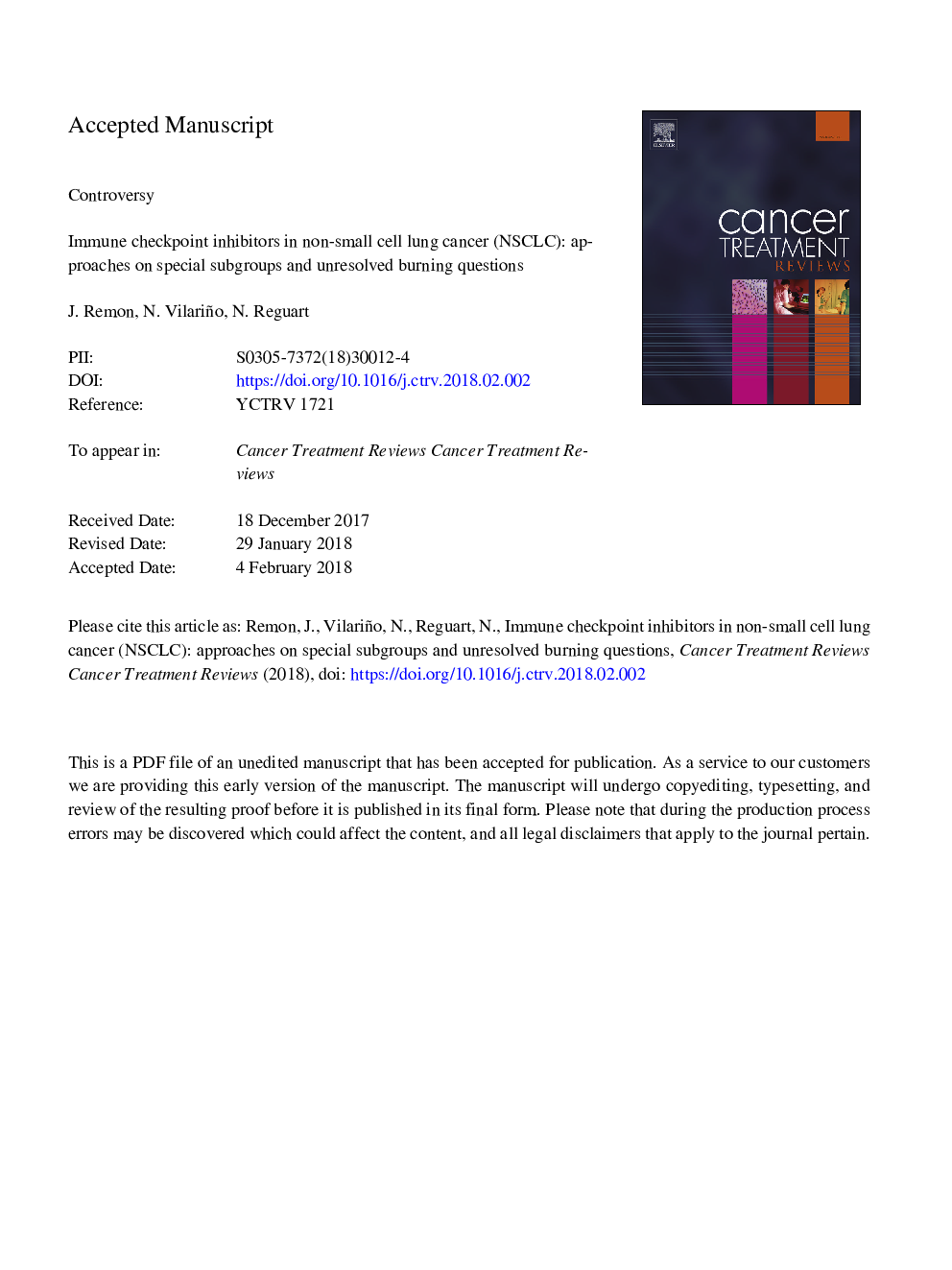| Article ID | Journal | Published Year | Pages | File Type |
|---|---|---|---|---|
| 8785893 | Cancer Treatment Reviews | 2018 | 32 Pages |
Abstract
Immune checkpoint inhibitors (ICIs) have been incorporated in the treatment strategy of advanced non-small cell lung cancer (NSCLC). Beyond the already approved indications in first- and second-line setting of advanced NSCLC, new data has recently emerged demonstrating its efficacy in locally advanced disease as maintenance after chemo-radiotherapy and currently several trials are also exploring its efficacy in earlier stages of the disease to evaluate whether these results could be extrapolated to the adjuvant setting. With the advent of all these new therapies, their potential in other thoracic malignancies such as mesothelioma and small-cell lung cancer are also being evaluated with encouraging preliminary data that endorses their short-term incorporation as new therapeutic options in these thoracic malignancies. However, despite all these new evidence, there are still several open questions that remain to be solved like the use of immune agents in special subpopulations such as elderly or fragile patients or the case of patients with brain metastases or autoimmune disorders. In addition some other open questions remain with regards ICIs activity in patients receiving corticosteroid or antibiotics, the potential use in oncogenic addicted tumours, as well as the safety of retreatment after the onset of immune-related adverse events (ir-AE) or the optimal dose schedule or time on treatment for ICIs administration. Herein, we propose to address all these questions, reviewing most recent evidence available in order to give readers some practical advises and guidance on how to deal with these challenges when treating NSCLC patients with immunotherapy.
Keywords
Related Topics
Health Sciences
Medicine and Dentistry
Oncology
Authors
J. Remon, N. Vilariño, N. Reguart,
